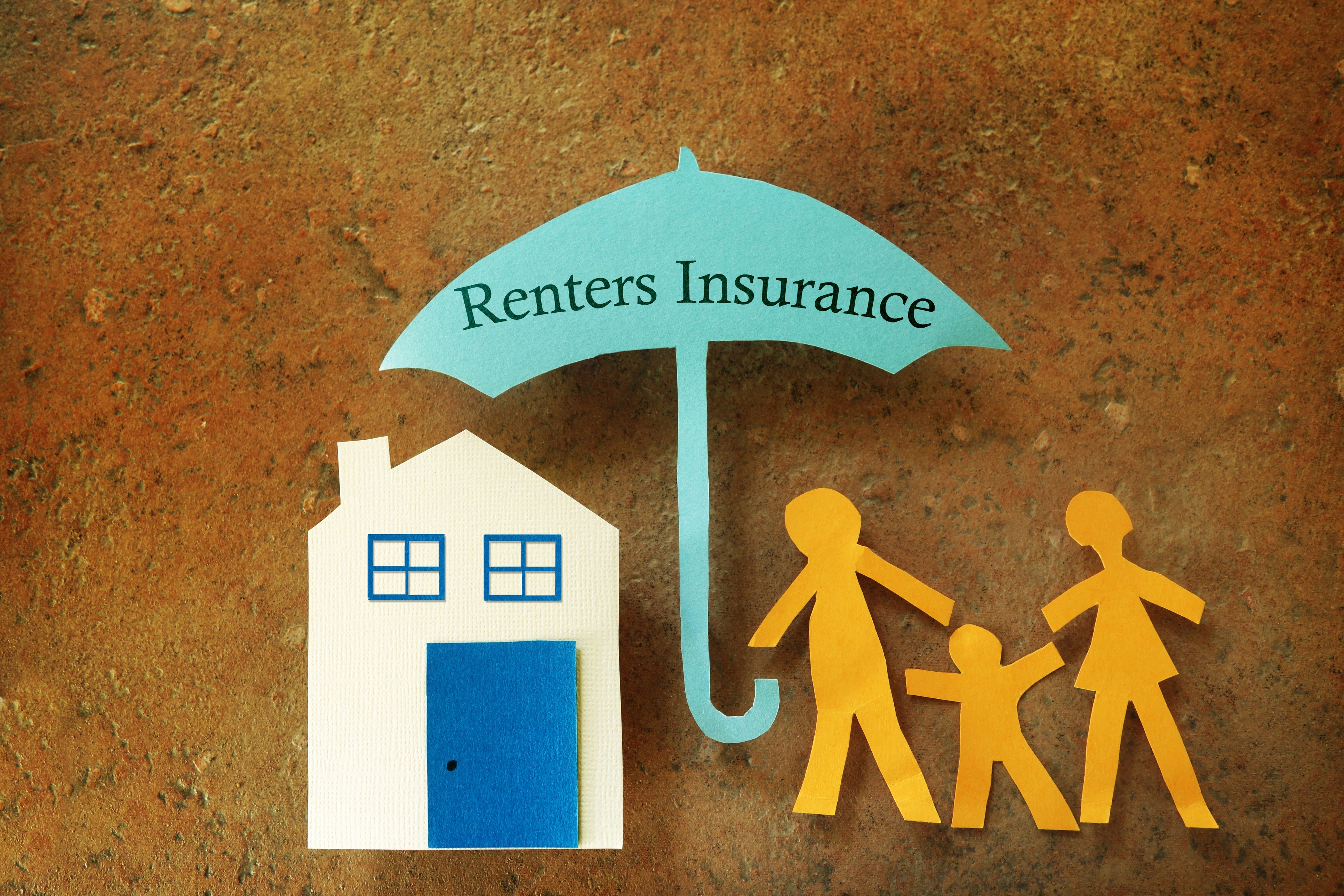Recent Posts
- 6 Basic Tips for ATM Safety
- Personal Banking Made Easy
- Manufactured Homes
- Budgeting to Help the Planet
- Mobile Wallets

Q: I’ve just signed a lease on a new apartment and I’m wondering if I should be taking out a renter’s insurance policy as well. What do I need to know?
A: Purchasing a renter’s insurance policy when signing a lease on a new apartment is a good idea.
Thanks to rising market prices and stricter loan qualifications, more people are choosing to rent living space instead of buying. Renting affords you mobility and the freedom from stressing over costly household repairs and maintenance.
One downside to renting, though, is if something catastrophic happens to your rental property, your landlord bears no responsibility toward having your damaged belongings replaced or repaired. This is where renter’s insurance comes in.
Renter’s insurance involves paying a monthly premium toward coverage against financial responsibility and liability in the event of an accident, theft or natural disaster. Specifically, renter’s insurance offers three aspects of financial protection: coverage for personal possessions, liability protection and additional living expenses (ALE).
Renter’s insurance is fairly inexpensive and the payoff can be tremendous. The National Association of Insurance Commissioners estimates the average monthly premium for renter’s insurance is $15-$30 a month. When you think about the peace of mind and financial cushion renter’s insurance provides, taking out a policy is a no-brainer.
Despite its convenience, renter’s insurance policies can be confusing to navigate. No worries, though, TFCU Insurance LLC (not an NCUA product) will walk you through it!
We have answered all your questions about renter’s insurance.
Should I choose replacement-cost coverage or actual cash-value coverage?
You can choose to purchase a policy that covers the cost of replacing a damaged or stolen object, or one that offers you the actual cash value of the damaged or lost item(s). To illustrate, if your flat-screen TV is stolen, a replacement-cost coverage plan will fund the purchase of a new TV, while a cash-value coverage plan will only pay you what the used TV was worth at the time of the theft.
Replacement-cost plans will have pricier premiums, but the robust coverage they offer is usually worth the extra expense.
How much coverage do I need?
When considering policies, you’ll need to decide how much coverage you actually need. Each policy will offer coverage to replace your possessions up to a certain limit. It’s best to take out a policy that will protect the full value of your belongings.
The only way to determine how much coverage you actually need is to take a complete inventory of your assets. If you’re choosing a replacement-cost plan, you’ll need to note how much it would cost to replace each item. If you’re going with a cash-value plan, note each item’s current worth. Tally up the total and, when purchasing a policy, be sure to choose one that provides sufficient coverage for your belongings.
Are all disasters covered by renter’s insurance?
Most renter’s insurance will cover damage caused by the following circumstances:
The two major events that most renter’s insurance policies do not cover are floods and earthquakes. If you live in an area that is prone to any of these happenings, you may want to purchase a separate flood or earthquake policy.
Should I choose a policy with a lower deductible?
Like all insurance policies, the deductible for your renter’s insurance is the amount of money you are responsible for paying in the event of disaster before your policy kicks in.
Many people automatically choose a policy with a lower deductible, but that is not always the smartest choice. A high-deductible policy will give you a lower monthly premium. The amount you save each month will likely offset the cost of the higher deductible if you need to file a claim.
Do I need a floater?
A floater, also known as a rider, will provide additional coverage for pricier items if they are lost or stolen. Most policies will include a cap for replacing a specific kind of lost or stolen items. This includes expensive jewelry, furs, collectibles, heirlooms, costly sports equipment and musical instruments. If you own one or several of these items, it may be worthwhile for you to add a floater to your policy.
Does my insurance offer any coverage outside damage to my possessions?
Your renter’s insurance policy will also offer you liability protection to cover you against lawsuits for bodily injury or property damage caused by you, your family members or your pets. This coverage will pay for legal counsel in a court of law and no-fault medical coverage for anyone who gets injured on your property.
What is ALE?
Additional living expenses (ALE) refers to any extra expenses you may have, such as hotel bills, food costs, etc., if your home is destroyed or otherwise unlivable because of a disaster that is covered in your policy. If you have ALE, you won’t need to worry about these extra costs while you wait for your home to be repaired.
A renter’s insurance policy will help you recover from a disaster until you can get back on your feet. With the affordable monthly premiums and generous coverage, it’s a wise investment in your financial future.